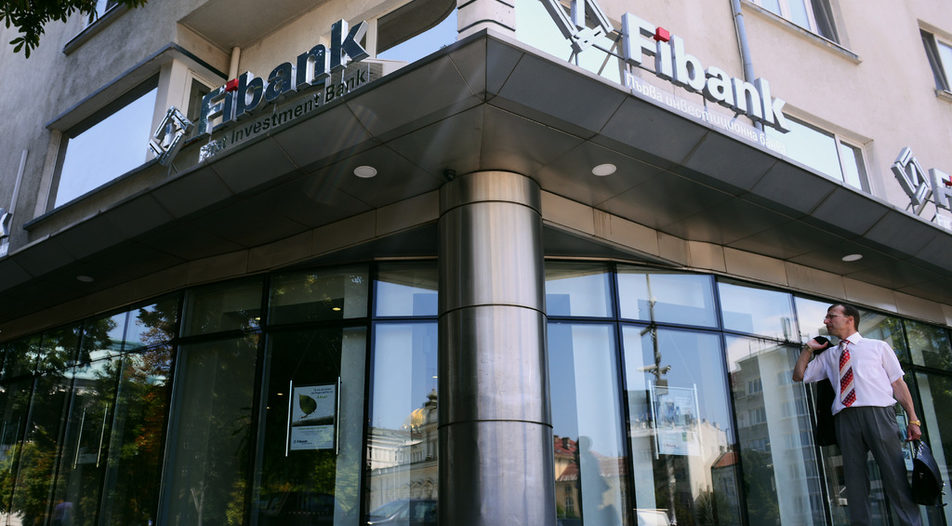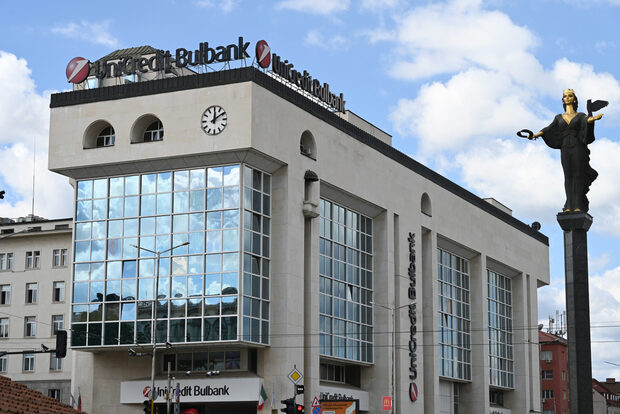Several months after the European Central Bank (ECB) announced that two Bulgarian lenders face capital shortfalls, one of them - First Investment Bank (Fibank), is already working on its balance sheet to comply with the ECB-imposed corrections. Fibank reported a loss of 29.5 million levs in its third-quarter financial report, which is mainly a result of significant impairments to its corporate portfolio, in which the ECB assessment revealed the most serious problems and required adjustments topping 400 million euro.
The loss in the third quarter erases part of the reported profit for the first six months of the year. By September, Fibank's profit reached 64.7 million levs after considering the loss, which is still 4% above last year's result. However, it should be noted that the positive result was aided by an upward revaluation of 72 million levs in the bank's portfolio of investment property. Therefore, the plus sign will probably disappear soon, considering that the ECB had identified a need for a downward revaluation of 41 million euro following the comprehensive assessment.
Corrections
According to the central bank's stress test, Fibank faces a capital shortfall of 262.88 million euro in the negative scenario and 124.5 million euro if we look only at the results of the asset quality review (AQR). This would not be sufficient even if the economic situation over the next three years remains approximately the same as it is now.
The bad apples come mainly from the corporate loan portfolio. According to detailed data, Fibank's non-performing loan (NPL) ratio increased from 19% to 44% following the assessment, whereas in the corporate portfolio the ratio of bad loans has skyrocketed from 21% to 56% as a result of the checks. The financial results of the third quarter show that 500 million levs worth of credit exposure has been reclassified from high-risk to non-performing.
As soon as Frankfurt published the results, Fibank stated that it had already covered half of the negative-scenario shortfall, or 130 million euro, through:
- profit before provisions of 65 million levs in the first half of 2019;- repaid loans and additional collateral for the assessed exposures worth 28 million euro.
It seems that the bank's strategy is to acknowledge the adjustments gradually through its financial reports, which means that one can expect the forthcoming financial reports to also be under pressure. In a press release on its most recent financial results, Fibank explained that in the third quarter of this year it had extensively reviewed its credit portfolio for consistency between the ECB's methodology (used in the overall valuation) and International Financial Reporting Standards.
"As a result, at the end of September, additional impairment expenses of 66 million levs were accrued. In doing so, the bank implements the more conservative approach to credit risk assessment following the completed asset quality review in its current activity," the lender said.
Interest rates' pressure
Adjustments aside, Fibank is looking good, according to its third-quarter financial report. The net interest income for the quarter was 58 million levs, which is a slight increase compared to the previous quarter, but an 8.3% decrease on an annual basis. The bank, like others in the market, suffers from shrinking margins as a result of a combination of negative central bank interest rates and excess liquidity in the system. As a result, interest income on loans has fallen, while the costs of attracted deposits have already reached natural lows.
Net revenue from fees increased slightly on an annualized basis, by 1.5 million levs to 23.9 million in the third quarter, but far from enough to offset rising administrative costs. In the first nine months of the year, these expenses reached 158.2 million levs, compared to 148 million levs a year earlier, the difference coming mostly from higher payments for external services.
Frankfurt watching
Fibank is currently implementing capital appreciation measures, and so is the other problematic Bulgarian bank following the ECB assessment - Investbank. In October, Finance Minister Vladislav Goranov said that ECB is following closely the implementation of the appropriate measures which Bulgaria should take before its (possible) entry into the Exchange Rate Mechanism II (ERM II), the preparatory system for adopting the euro. The final decision regarding Bulgaria's accession to ERM II has been postponed until spring. "The ECB expects progress on both banks' capital plans which will pave the way for unified banking supervision," local news portal Mediapool quoted Goranov as saying.
In response to questions by Capital about the progress of Bulgaria on the path to ERM II and of local banks on their capital plans, the ECB said that the implementation of follow-up measures after a thorough assessment is the responsibility of Bulgarian institutions and the Bulgarian National Bank in particular.
Several months after the European Central Bank (ECB) announced that two Bulgarian lenders face capital shortfalls, one of them - First Investment Bank (Fibank), is already working on its balance sheet to comply with the ECB-imposed corrections. Fibank reported a loss of 29.5 million levs in its third-quarter financial report, which is mainly a result of significant impairments to its corporate portfolio, in which the ECB assessment revealed the most serious problems and required adjustments topping 400 million euro.
The loss in the third quarter erases part of the reported profit for the first six months of the year. By September, Fibank's profit reached 64.7 million levs after considering the loss, which is still 4% above last year's result. However, it should be noted that the positive result was aided by an upward revaluation of 72 million levs in the bank's portfolio of investment property. Therefore, the plus sign will probably disappear soon, considering that the ECB had identified a need for a downward revaluation of 41 million euro following the comprehensive assessment.










